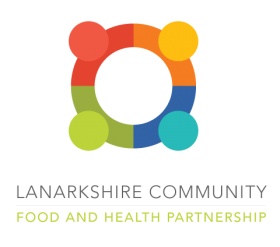Project Description
Happy Smile Project is part of the Scottish Government’s Oral Health Challenge Fund
Looking After Your Oral Health
Oral Health
Having good oral health means being able to eat, speak and socialise without discomfort or embarrassment.
Good oral health is very important to our general health and well-being.
Brush your teeth twice a day using a fluoride toothpaste
Daily brushing and cleaning between your teeth is important because it removes plaque. If the plaque isn’t removed, it continues to build up and can cause tooth decay and gum disease.
Everyone should use a toothpaste containing at least 1350ppm fluoride.
Brush your teeth for at least 2 minutes covering all surfaces of your teeth.
Gently scrub each tooth thoroughly using a brush with a small head.
Gently brush your tongue to remove bacteria.
Spit, don’t rinse after brushing. This gives the fluoride in toothpaste time to work to protect teeth.
Floss between your teeth.
Using dental floss or an interdental brush every day will help to remove plaque and food from in between the teeth and other areas where the toothbrush may miss.
Flossing helps to prevent plaque build-up and keep gums healthy.
Try to limit the amount and the frequency of sugar intake.
Food and drinks containing sugars should be limited between meals, as should acidic drinks such as diet juices and fruit juices.
Plain milk and water are the only safe drinks for teeth. Flavoured water often contains high quantities of sugar.
Have a healthy lifestyle.
Having a healthy lifestyle is good for your whole body not just your teeth.
You and your family can improve your health by eating a low sugar, low fat diet, not smoking and only drinking alcohol within the recommended weekly guidelines.
Looking after your children’s teeth.
Start brushing a baby’s teeth as soon as they come through. Use a smear of fluoride toothpaste on a baby tooth brush. Brush teeth twice a day.
For children three to six years old inclusive, use a pea sized amount of fluoride toothpaste. Brush teeth twice a day.
For children aged 7 years and older use a pea sized amount of fluoride toothpaste. Brush teeth twice a day.
Register with a dentist and attend regularly.
To register with a dentist simply telephone or visit a practice in your area and ask if you can register with them.
When you have chosen your preferred practice, check with them that you can be accepted as an NHS patient and discuss any further needs you may have including any entitlement to free dental treatment.
Everyone, even those who wear dentures, should have regular dental check-ups.
Smokers and drinkers have an increased risk of oral disease so may need to be seen more frequently by a dentist.
In pain and need dental help?
If you are not registered with a dentist and require help and advice out of normal working hours, call NHS 24 on 111, Monday to Friday, 6.00pm-8.00am and all day on weekends and public holidays.
Mouth cancer
What is mouth cancer?
Mouth cancer, also known as oral cancer, describes one of the areas where head and neck cancers can occur and includes various kinds of tumours affecting the lips, salivary glands, tongue, gums, palate and inside of the cheeks.
Three signs and symptoms not to ignore are:
· Mouth ulcers which do not heal in three weeks.
· Red and white patches in the mouth.
· Unusual lumps or swellings in the mouth or head and neck area.
If in doubt get it checked out by your dentist.
More information
Oral Health Improvement Plan
The Scottish Government’s new Oral Health Improvement Plan focusses on prevention and addresses the link between deprivation and ill-health. It proposes the introduction of personalised care plans which focus on lifestyle choices, for example diet, alcohol and smoking, and how these impact on health.
A summary of the plan can be found here: https://www.gov.scot/publications/short-guide-oral-health-improvement-plan/
Some oral health data…
The National Dental Inspection Programme (NDIP) is carried out annually on P1 and P7 children. It aims are to inform parents/carers of the oral health status of their children and report to the Scottish Government and NHS Boards about oral disease prevalence at national and local levels.
This year’s report focuses on the results of the Detailed Inspection of P1 school children in school year 2018/19.
This year’s National Dental Inspection Programme has some positive results for Lanarkshire. The percentage of pupils with no obvious decay experience in Lanarkshire was 78.4%. This represents a 4.3 percentage point increase from the last survey in 2017 and an impressive 31% improvement from the first NDIP survey in 2004/05.
You can view the full NDIP Report here:
https://www.isdscotland.org/Health-Topics/Dental-Care/Publications

